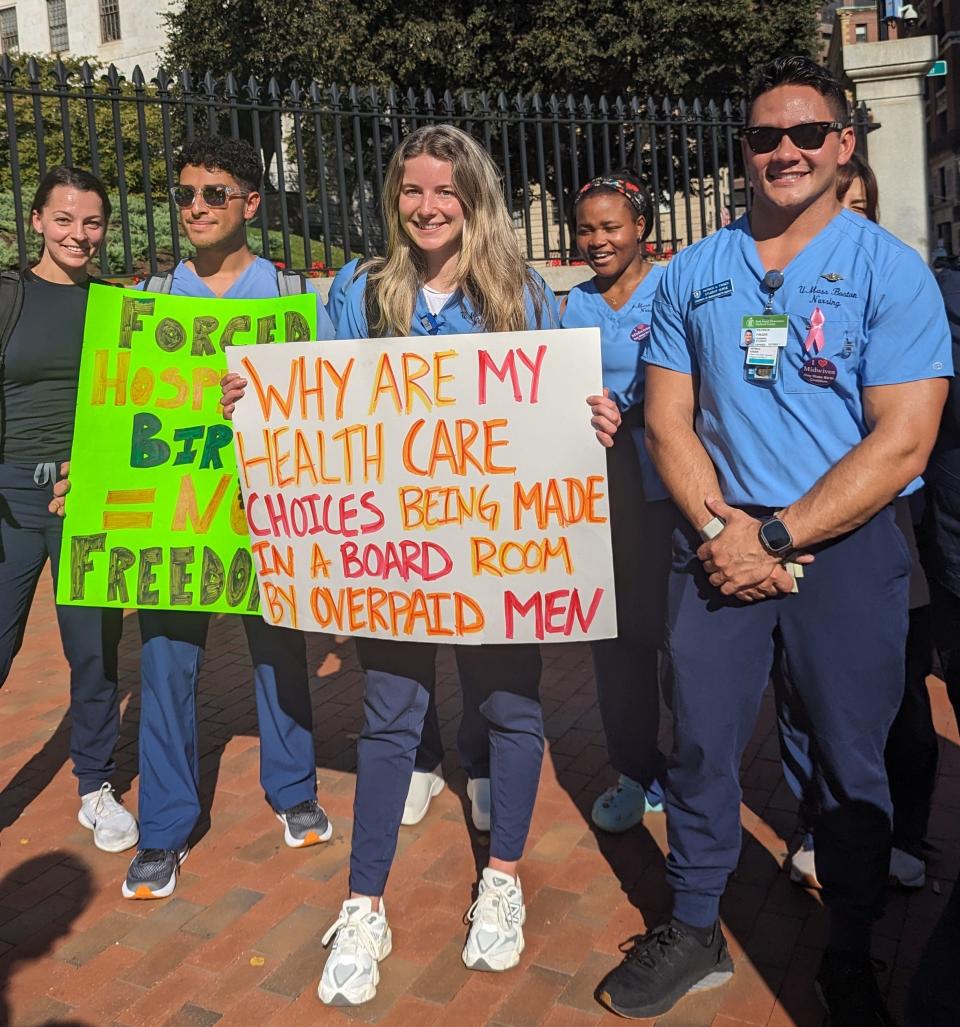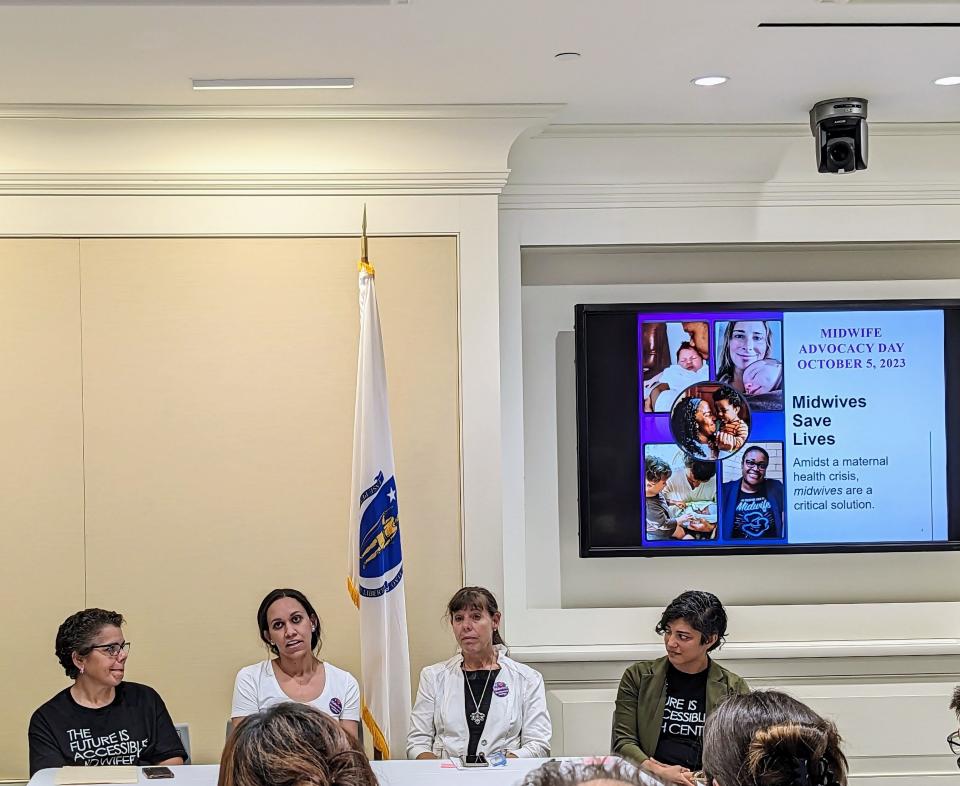'We're facing huge disparities.' On Midwife Advocacy Day, rally makes case for home birth
BOSTON — Hannah Neale, a nursing student from University of Massachusetts Boston, held a placard in front of the State House on Thursday afternoon.
"Why are my health care choices being made in a boardroom by overpaid men?" it read.
Neale and her fellow classmates were at a rally, along with several health care agencies, to show support for midwives. Everyone in the rally chanted one slogan, again and again: “Midwives save lives!”
On Midwife Advocacy Day, maternal and reproductive health care advocates joined the rally for expanded access to midwives. According to the advocates, Massachusetts is facing a worsening maternal health crisis.

Are midwives legal in Massachusetts?
Massachusetts does not license certified professional midwives, who provide home birth services. Thirty-seven states in the country license certified professional midwives, but Massachusetts does not. Although state law allows nurse-midwives to practice independently without physician oversight, without the state license, access to midwives is only getting more difficult, advocates said.
Six maternity care centers have also closed in Massachusetts since 2020, including two of the only three birth centers in operation in the state.
Several bills are pending before the Legislature to license certified professional midwives and to increase patient access. In February, state Rep. Kay Khan, D-Newton, and state Rep. Brandy Fluker Oakley, D-Boston, in the House and state Sen. Becca Rausch, D-Needham, in the Senate filed legislation (HD 2209/SD1457) to address critical workforce shortages by licensing certified professional midwives. The bill also aims to expand equitable access to care and birth choices while reducing health care costs by adding licensed certified professional midwives as Medicaid providers.
Birth centers and home birth midwives give women with low-risk pregnancies a homier setting than a hospital, more natural birth options and fewer medical interventions, according to professional midwives. Midwifery care — offered at a hospital or birth center — is associated with better outcomes and lower costs, according to a report by the Massachusetts Health Policy Commission.
Why are midwives important?
In a panel discussion at the State House, several members spoke up about midwifery services impacts. The panel members were Susan Hernandez, CNM, Massachusetts Affiliate American College of Nurse Midwives, Commission on Racial Inequities in Maternal Health; Rachael Lovely, a member of the Mashpee Wampanoag tribe and a birth doula; Dr. Pooja Mehta, OB-GYN and Ann Whitman, CPM, Massachusetts Chapter of National Association of Certified Professional Midwives.
Lovely, from Mashpee, shared her own birthing experience, highlighting Cape Cod’s lack of access to midwifery and home birthing services. Lovely initially struggled a lot to find a midwife who was willing to travel to the Cape to assist in her birthing process.
For her, it was important to have a personalized experience rather than a hospital birth, as well as honoring tribal traditional practices at home.
“We're facing huge disparities when it comes to outcomes,” said Lovely, focusing on the rising statistics of women of color and tribal women’s mortality rate.

“I didn't want to be part of one of those statistics and I felt safe in my home and I felt safer with a midwife, to be completely honest,” she said. “I wanted evidence-based care and I wanted to be looked at as more than a statistic, especially as an Indigenous person.”
According to Lovely, her midwife team was able to make space for personalized things to be part of her experience and she is extremely grateful to have had that opportunity.
“We need an integrated system where midwives are a part of the foundational fabric of our health system, which will not only impact outcomes for people who actually need midwives, but could also improve the outcomes that are delivered by physicians like me when we work next to them,” said Mehta, an OB-GYN at Boston Medical Center.
Mehta shared her journey as a physician, where while working with midwives she learned important skills valuable to a patient’s needs.
'Not in the curriculum but essential for better care'
“I learned how to attend a physiological, vaginal birth, how to perform a trauma-informed pap smear and a lot of other skills that were not in the curriculum but essential for better care and I learned all this from midwives,” said Mehta.
According to Mehta and many other advocates, midwives are not physician extenders. They should be integrated in the system as essential providers who can listen, care and communicate more with the patient about their needs.
Rasheek Tabassum Mujib writes about healthcare and education. Reach her at rmujib@capecodonline.com.
The Cape Cod Times is providing this coverage for free as a public service. Please take a moment to support local journalism by subscribing.
This article originally appeared on Cape Cod Times: Midwife Advocacy Day calls for midwife integration into health care

